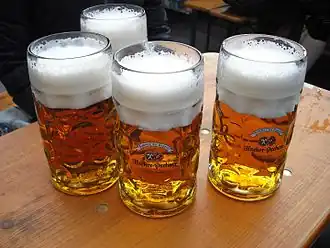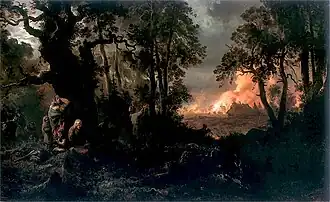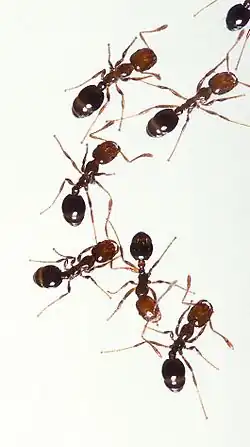Korean/Words/ㅂ
| |
바다
RR: bada
- sea
- large area where something flourishes
- Relatives
- 받다 (badda, "to support, receive")
- 바다 (bada, "sea")
- 바닥 (badag, "base, bottom")
- 바당 (badang, "base, bottom")
- 바당 (badang, Jeju dialect for "sea")
- 바닿 (badah, old spell for "sea")
- 바랄 (baral, old spell for "sea")
- 바르 (bareu, Jeju dialect for "sea")
- 바ᄅᆞᆯ (barwl, old spell for “sea”)
- 바를 (bareul, Jeju dialect for "sea")
- 바탕 (batang, "base, basis")
- 버텅 (beoteong, "stepping stone")
- 발 (bal, "foot")
- 밭 (bat, "(flower) bed, (wheat) field")
- Comparatives
- вода #Russian (voda, "water")
- water #Dutch ("water, body of water"), Listen to the audio.
- Wasser #German ("water, body of water")
- vatn #Icelandic ("water, body of water"); etc.
- vadum #Latin (pl. vada)
- A shallow, ford, shoal.
- A body of water; sea, stream.
- The bottom of a body of water.
- wadan #Old English
- wade #English
- bat #English
- base #English
- vase #English
- vat #English
- bath #English
- Baden #German ("bath")
- bottom #English
- ball #English ("front bottom of foot")
- bottom #English
- foot #English
- بحر #Arabic (bahr, "sea, large river")
- بَحْر قَزْوِين #Arabic (baḥr qazwīn, "Caspian Sea")
- Hazar Denizi #Turkish ("Caspian Sea")
- Criticism
- (Secondary research)
| wikt: Reconstruction:Proto-Korean/patak |
|---|
|
The above reads that Proto-Korean for "sea" may be a loan from Old Japanese. This hypothesis may be well falsified by checking up how thickly both words for "sea" are related to other terms respectively in reality, as per mass comparison as it were. For Korean, see the Relatives and Comparatives above.
- See also
- 불바다 (bul-bada, "conflagration,"), lit., "fire-sea" cf. vuurzee #Dutch, etc.
- Badakhshan
RR: badag > badak
- Noun
- 평평하게 넓이를 이룬 부분.
- plain, wide flat area
- 물체의 밑부분.
- bottom, bed, floor
- 지역이나 장소.
- place, area, ground
- Noun 2
- '바다'의 방언 (경남, 전남)
- Dialect for "sea"
- Relatives
- 받다 to receive; support, propup; butt, head
- 바다 sea; body of water
- 바당 (obsolete) floor; (Jeju dialect) sea;
- 바탕 base, ground
- 마당 yard, ground
- Comparatives
- Badakhshan #English, etc., from بدخشان #Percian (Badaxšân) [2]
Korean/Words/바람
바람벽
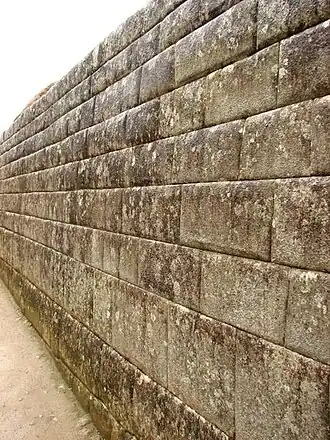
- Roman: baram-byeog
- Split: 바람 (baram, possibly "nearby, surrounding") + 벽 (壁, byeog, "wall")
- Noun
- Relatives
- 바람
- 바래다
- 바래다주다
- Comparatives
|
Korean/Words/바르다
Korean/Words/박
Korean/Words/박다
박쥐
RR: bakjwi
- A bat (or, rearmouse, reermouse, reremouse, flindermouse, flittermouse, fluttermouse, flying-mouse, chiropter, chiropteran, etc.), from Middle English balke.
- Etymology
- Korean/Words/밝쥐 (balgjwi), a compound of 밝다 (balgda, "to be bright-eyed") + 쥐 (jwi, "rat")
Korean/Words/반달
반달족
.jpg)
- Homonyms
- 반달 (bandal, "half-moon")
- Relatives
- Comparatives
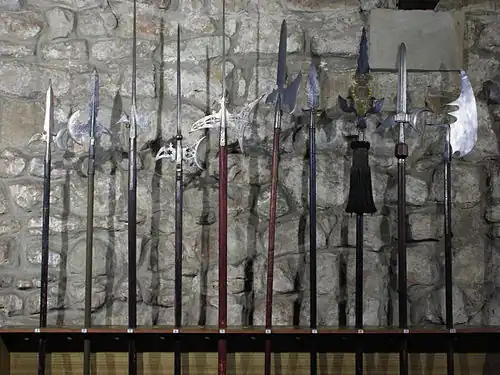
- A hand weapon consisting of a long pole fitted with a metal head; the head consists of a blade similar to an axe and usually a spike or hook.
- Etymology
- (1495) Middle French hallebarde, from Italian alabarda, from Middle High German halmbarte (“broad-axe with handle”), from halm << Proto-Germanic *helmô (“handle”) + barte (“hatchet”) << *bardaz (“broadax”), literally "beard."
- (historical) A member of a Germanic people who invaded Italy in the 6th century.
- Etymology
- ... from Germanic, derived from the Proto-Germanic elements *langaz + *bardaz; equivalent to long + beard. Some sources derive the second element instead from Proto-Germanic *bardǭ, *barduz (“axe”), related to German Barte (“axe”). [7]
Korean/Words/반하다
받다
RR: badda
- to receive, take
- Relatives
- 받들다 (baddeulda, "to support, uphold, esteem")
- 바치다 (bachida, "to dedicate")
- 받치다 (badchida, "to support, back up")
- 받침 (badchim, "support, pad")
- 바다 (bada, "sea")
- 바닥 (badag, "base, bottom")
- 바당 (badang, "base, bottom")
- 바당 (badang, Jeju dialect for "sea")
- 바닿 (badah, old spell for "sea")
- 바랄 (baral, old spell for "sea")
- 바르 (bareu, Jeju dialect for "sea")
- 바를 (bareul, Jeju dialect for "sea")
- 바ᄅᆞᆯ (barwl, old spell for “sea”)
- 바탕 (batang, "base, basis")
- 버텅 (beoteong, "stepstone")
- 발 (bal, "foot")
- 밭 (bat, "(flower) bed, (wheat) field")
- 버티다 (beotida, "to resist, hold out, stand out; endure; prop up")
- Comparatives
- put #English
- fund #English
- fundus #Latin ("foundation")
- вода #Russian (voda, "water, body of water")
- water #Dutch ("water, body of water"); listen to the audio.
- Wasser #German ("water, body of water")
- vatn #Icelandic ("water, body of water"); see also its cognates.
- vadum #Latin (pl. vada)
- A shallow, ford, shoal.
- A body of water; sea, stream.
- The bottom of a body of water.
- wadan #Old English
- wade #English
- vase #English
- vat #English
- base #English
- bat #English
- bath #English, Baden #German
- bottom #English
- ball #English ("front bottom of foot")
- foot #English
- بحر #Arabic (bahr, "sea, large river")
- بَحْر قَزْوِين #Arabic (baḥr qazwīn, "Caspian Sea")
- دریای خزر #Percian (daryâ-ye xazar, "Khazar Sea")
- Xəzər dənizi #Azerbaijani ("Khazar Sea")
- Hazar Denizi #Turkish ("Khazar Sea")
- See also
- Korean/Words/놓다 (nohda, "to lay, put")
- Korean/Words/두다 (duda, "to lay, put")
- cf. do #English in archaic sense
Korean/Words/받이
Korean/Words/발
Korean/Words/발바리
밝다
RR: balg-da > bak-da
- Adjective
- to be bright, light, clear, otherwise than dark, unclear
- to be bright, intelligent, etc.
- to be (in process of) dawning and morning
- Antonyms
|
- Relatives
- 밝히다 (balghida) "to brighten"
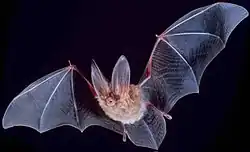
- 밝쥐 (balgjwi) > 박쥐 #Korean (bagjwi), literally, "bright-eyed rat," that is, "bat" from balke #Middle English
- Comparatives
| Tongues | Remarks |
|---|---|
| "white" |
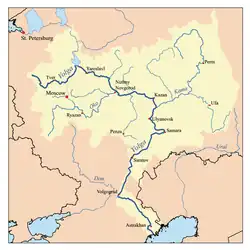
The two merging Russian rivers Volga and Kama, possibly meaning respectively "white" and "black," thus, "west" and "north" as per the oriental tradition. As such, their etymology should be oriental, and Korean might be above all other candidates.
| “ | The Turkic peoples associated the Itil's origin with the Kama. Thus, a left tributary to the Kama was named the Aq Itil "White Itil" which unites with the Kara Itil "Black Itil" |
” |
| “ | The Kama (...) is (...) the longest left tributary of the Volga and the largest one in discharge. At their confluence, in fact, the Kama is even larger than the Volga. | ” |
| “ | Volga Bulgaria (...) or Volga–Kama Bulghar, was a historic Bulgar state that existed between the 7th and 13th centuries around the confluence of the Volga and Kama River, in what is now European Russia. Volga Bulgaria was a multi-ethnic state with large numbers of Turkic Bulgars, a variety of Finnic and Ugric peoples, and many East Slavs. The very strategic position of Volga Bulgaria allowed it to create a monopoly between the trade of Arabs, Norse and Avars. | ” |
- See also
- w: Udmurt, perhaps literally meaning "upper river liver" as per Korean. Suggest otherwise!
Korean/Words/밟다
밤
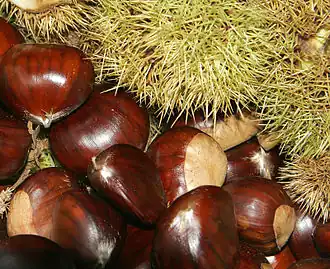
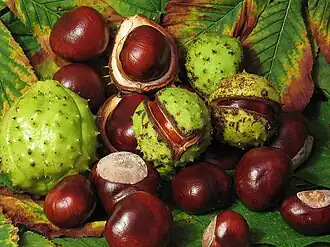
- Roman: bam [밤ː]
- Noun
- Relatives
- 마름 (mareum, "water chestnut, water caltrop")
- Compounds
- 단밤 (dan-, lit. "sweet chestnut") [10]
- 말밤 (mal-, lit. "coarse chestnut" cf. 末栗)
- 말밤* (mal-, "horse chestnut" [11])
- 물밤 (mul-, lit. "water chestnut") [12]
- 밤색 (-saeg, "brown" lit. "chestnut color")
- Comparatives
- marron #French
- (n.) horse chestnut, chestnut
- (a.) chestnut brown
- See also
- 밤낮 (bam-, "all the time," lit. "night and day" alt. day and night)
- 밤불 (bam-bul, lit. "night fire" cf. vampyre)
Korean/Words/밤불
Korean/Words/밤색
Korean/Words/밥
Korean/Words/밧줄
방아
- Compounds
- 디딜방아 (didil-, "treadmill type")
- 물(레)방아 (mulle-, "watermill type")
- 연자방아 (yeonja-, "animal-engine type")
- 방앗공이 (bang-at-gong-i, "pestle, pounder")
- Relatives
- 찧다 (jjih-da, "to pound")
- 빻다 (ppah-da, "to pulverize")
- Comparatives
|
Korean/Words/방죽
Korean/Words/밭
Korean/Words/뱌비다
버들강아지

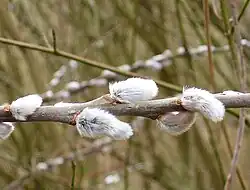
- See also
- 보풀 (bopul, "fluff")
버텅아래
RR: beoteong-arae
- Your, His or Her Majesty
- Synonyms
- Comparatives
- Majesty
- The common majesty is "the quality of being impressive and great." What could physically justify the royal Majesty? It may be especially when His/Her Majesty leads the great noble crowd. Likewise is the case with the Korean counterpart, which is a metonym from Korean 버텅 (beoteong, "stepstone" + 아래 (arae, "the lower part"), possibly a calque from Sino-Korean 폐하 (pyaeha) from Chinese 陛下, all suggesting the noble gathering below the royal stepstone. As such, great nobility, east and west, must act as a measure, metaphor and/or metonym for great royalty and/or majesty.
- Comments
- This entry is to enter 표준국어대사전 (pyojun-gukeo-daesajeon), too.
벌
- Relatives
- 꿀 (kkul, "honey")
- Compounds
- 꿀벌 (kkul, "honeybee")
- 벌꿀 (beol-kkul, literally, "bee honey")
- 말벌 (mal-beol, "*horse bee," lit. "horse bee")
- Comparatives
|
- See also
- 벌판 (beol-pan, "valley")
Korean/Words/벌판
범
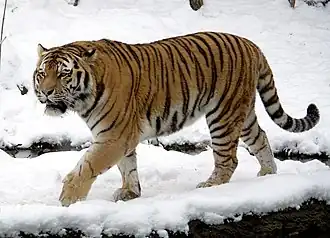
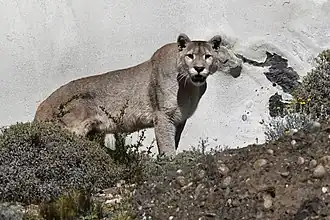
- Roman: beom
- Noun
- Synonyms
- 호랑이 (horang-i)
- Compounds
- Comparatives
| ||||||
벼락
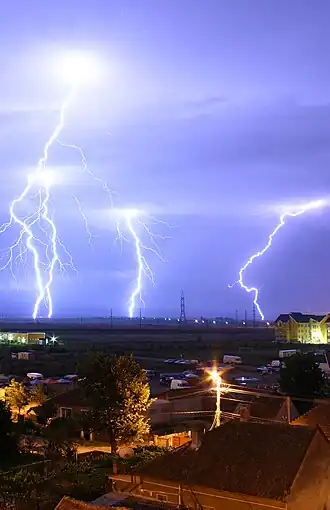

- 공중의 전기와 땅 위의 물체에 흐르는 전기 사이에 방전 작용으로 일어나는 자연 현상.
- thunderbolt (thunder + lightning) [29] from thunderstorm
- thundercrack cf. Icelandic þórduna, Swedish tordön, lit. "Thor's crack"
- Synonyms
| Korean | Sino-Korean |
|---|---|
- Compounds
- Relatives
- Comparatives
| Adapted from lightning #Translations |
Adapted from thunder #Translations |
|---|---|
|
|
- See also
벽
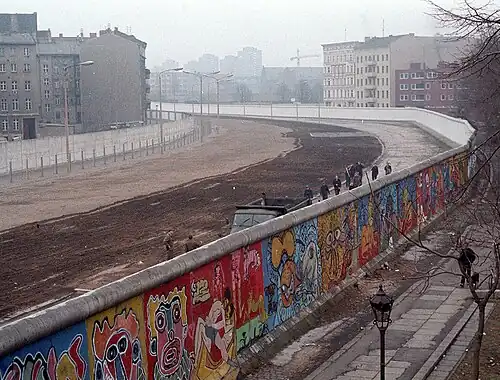
- Compounds
- 바람벽 (baram-, "surrounding wall")
- 성벽 (城壁, seong-, "rampart, defensive wall" around castles or cities [40])
- 장벽 (障壁, jang-, "dam; barrier") [41] cf. 베를린 장벽 "Berlin Wall"
- 절벽 (絶壁, jeolbyeog, "cliff") cf. bergvegg #Norwegian "rock face" from berg ("cliff") + vegg ("wall")
- Relatives
- 울(타리) (ul-tari, "thin fence, barrier") cf. wall #English
- 담(벼락) (dam-byeorag, "thick fence or wall") cf. dam #English
- 댐 (daem, "dam") cf. "Afsluitdam," as it were
- 둑 (dug, "dyke") cf. Afsluitdijk
- 제방 (堤防, jebang, "dyke, levee, bank, embankment")
- See also: (What's common in the following?)
- 벼락 (byerag, "wall" & "thunderbolt") cf. Barak #English from Hebrew for "thunderbolt"
- 벼랑 (byeorang, "cliff, precipice")
- 벼룩 (bueorug, "flea")
- Comparatives
|
Korean/Words/변두리
Korean/Words/별
Korean/Words/보다
Korean/Words/보름
보리
- Comparatives
- From beer #Translations
|
보풀
1.jpg)
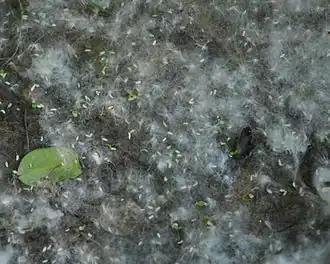
- Relatives
- 포플러 (popeulleo) from poplar
- 포퓰러 (popyulleo) from popular
- 포플린 (popullin) from poplin
- 뽀뿌링 (ppoppuring) likely from Japanese pronunciation
- Comparatives
|
|
- Uses
- See also
볼
- Roman: bol
- Noun
- 뺨의 한복판. 뺨의 가운데를 이루고 있는 살집. [47]
- cheek
- (anatomy) The soft skin on each side of the face, below the eyes; the outer surface of the sides of the oral cavity. Synonym: (obsolete) wang
- (anatomy, informal, usually in the plural) The lower part of the buttocks that is often exposed beneath very brief underwear, swimwear, or extremely short shorts. Synonyms: arsecheek, asscheek, butt cheek, nether cheek
- cheek
- 좁고 기름한 물건의 너비. 신발이나 구두의 옆면과 옆면 사이의 간격. [48]
- wikt:ball, ie, the width of a foot. (Sense 4.)
- Relatives
- Comparatives
|
|
- See also
Korean/Words/볼기
Korean/Words/볼록
부글부글

- 액체가 (주로 끓을 때) 요란스럽게 잇따라 많은 거품을 일으키는 소리나 겉보기.
- (reduplication as in boiling of liguid) bubblingly.
- Compounds
- Relatives
- Comparatives
- Adapted from bubble #Translations, equivalent to 거품 (geopum) above,
demonstrating the global reduplicating nature of bubbles!
Egyptian Arabic: بقبيقة (buʾbēʾa) Aragonese: bambolla Armenian: պղպջակ (płpǰak) Assamese: বুৰবুৰণি (burburoni) Asturian: burbuya Basque: burbuila Belarusian: бу́рбалка (búrbalka) Bengali: বুদ্বুদ (budbud) Catalan: bombolla Czech: bublina Danish: boble Galician: burbulla, gurgulla Greek/Ancient: πομφόλυξ (pomphólux) Gujarati: બબલ (babal) Hindi: बुलबुला (bulbulā), बुदबुदा (budbudā) Hungarian: buborék Latvian: burbulis Lithuanian: burbulas Maori: mirumiru Marathi: बुडबुडा (buḍbuḍā) Nepali: बबल (babal) Norwegian: bubla Oriya: ବୁଦ୍ ବୁଦ୍ (bud bud) Portuguese: borbulha Punjabi: ਬੁਲਬੁਲਾ (bulbulā) Sanskrit: बुद्बुद (budbuda) Sindhi: بدبدو (budibudō) Sinhalese: බුබුළු (bubuḷu) Slovak: bublina Spanish: burbuja Swedish: bubbla Vietnamese: bong bóng |
- See also
Korean/Words/부르다
부풀다


- 살가죽이 붓거나 부르터 오르다.
- to swell
- 종이나 헝겊 따위의 거죽에 부풀이 일어나다.
- to get fluffy, fuzzy, nappy, shaggy
- Synonyms
- 붓다 (bus-da, "to swell")
- Relatives
- 보풀 (bopul, "fluff, nap")
- Comparatives
|
- See also
- 보풀 (bopul, "fluff, nap")
Korean/Words/북
불
- Antonyms
- 물 (mul, "water, body of water")
- Comparatives
- Adapted from wikt: fire #Translations & #Etymology
|
- See also
- 불다 (bulda, "to blow")
불개미
- Roman: bul-gaemi
- Noun
- Relatives
- 불 (bul, "fire")
- 개미 (ant, "ant")
- Comparatives
|
- See also
불거지다
.png)
- Relatives
- 불룩 (bulluk, "bulgingly")
- 볼록 (bollok, "less bulgingly")
- 붉어지다 (bulgeojida, "to get red") [67]
- 밝아지다 (balgajida, "to get brightened")
- See: 밝다 (balgda, "to be bright")
- Comparatives
- Adapted from bulge #Translation
- ("something sticking out from the surface")
Czech: boule Dutch: bult German: Beule Korean: 부루퉁이 (burutung-i) Spanish: bulto Swedish: bula |
- bulk #English ("Unpackaged goods transported in large volumes, e.g. coal, ore or grain")
- from Middle English bulk ("a heap; cargo; bulge")
- Adapted from wool #Translation
Dutch: wol German: Wolle Latvian: vilna Lithuanian: vilna Macedonian: во́лна (vólna) Polish: wełna Slovene: volna |
- Adapted from folk #Translation
Dutch: volk German: Volk Norwegian: folk Swedish: folk French: peuple Italian: popolo Latin: populus |
Korean/Words/불곰
Korean/Words/불나비
불다
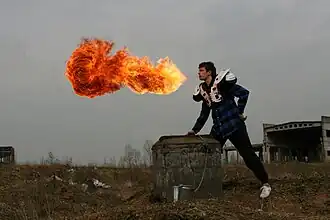
- 바람이 일어나서 어느 방향으로 움직이다.
- (for the wind) to blow
- 입을 오므리고 날숨을 내어보내어, 입김을 내거나 바람을 일으키다.
- to blow (the fire, wind intrument, etc.), to produce an air current, to propel by an air current.
- Relatives
- Comparatives
| ||||
Korean/Words/불두덩
Korean/Words/불룩
Korean/Words/불리다
불바다
RR: bulbada
- Compound of 불(bul, "fire") + 바다(bada, "sea," also, a figure for a large area), literally, "sea of fire"
- conflagration, i.e., "a large fire extending to many objects, or over a large space; a general burning".
- Compares
- vuurzee #Dutch : conflagration, literally, "sea of fire"
- Feuermeer # German : conflagration, literally, "sea of fire"
Korean/Words/불알
Korean/Words/붉다
붓다


- Homonyms
- 액체나 가루 따위를 다른 곳에 담다. (to pour)
- Synonyms
- 부풀다 (bupul-da)
 Female bosoms
Female bosoms Lips
Lips
- Relatives
- 움트다 (umteu-da, "to bud")
- 싹트다 (ssakteu-da, "to bud")
- 부르트다 (bureuteu-da, "to blister, swell up")
- 벌어지다 (beol-eo-ji-da, "to unfold")
- Comparatives
|
비치다
RR: bichida
- 빛이 나서 환하게 되다.
- to shine
- Relatives
- 비추다 (bichuda, "to shine or shed light on")
- 빛 (bich, "light")
- 빛나다 (bichnada, "to shine"), the compound of 빛(bich, "light") + 나다(nada, "to come out")
- Comparatives
- "to shine"
- wikt: светя́ #Bulgarian (svetjá)
- wikt: svítit #Czech
- wikt: świecić #Polish
- wikt: свети́ть #Russian (svetítʹ),
- wikt: свети́ться #Russian (svetítʹsja) (vi)
Korean/Words/빌다
빛
RR: bich or bit
- light, ray, gleam; gloss; flash
- color, hue, tint
- look, sign
- prospect, hope
- Comparatives
| Meaning "white" |
|---|
- See also
Footnotes
- ↑ One of the most terrific threats of North Korea is such that they could/would make Seoul a sea of fire.
- ↑ This looks and sounds like a compound of Korean 바닥 (badak, "flat place") + 산 (san, "mount"), cf. 고원 (高原, gowon, lit., "high flat place").
- ↑ https://ko.dict.naver.com/#/search?query=바람벽
- ↑ https://ko.dict.naver.com/#/search?query=반달족
- ↑ https://en.wiktionary.org/wiki/반달리즘
- ↑ The Vandals were a Germanic people who first inhabited what is now southern Poland. They established Vandal kingdoms on the Iberian Peninsula, Mediterranean islands, and North Africa in the 5th century.
- ↑ The long-handled axe is commonly known as "halberd" in Roman context, and "Woldo" related to 반달 (babdal, "half-moon") in Korean context, which is homonymous to "Vandal". What if "Lombard" and "Vandal" were turned out to be synonymous after all?
- ↑ https://ko.dict.naver.com/#/search?query=밤
- ↑ https://en.wiktionary.org/wiki/밤#Etymology_2
- ↑ https://ko.dict.naver.com/#/search?query=단밤
- ↑ Assumed, hence the asterisk, as originally meaning "coarse chestnut."
- ↑ https://ko.dict.naver.com/#/search?query=물밤
- ↑ https://ko.dict.naver.com/#/search?query=방아
- ↑ https://en.wiktionary.org/wiki/방아
- ↑ The last "-a" is nothing but a verbal suffix.
- ↑ https://ko.dict.naver.com/#/search?query=버들강아지
- ↑ https://en.wiktionary.org/wiki/버들강아지
- ↑ Literally, "willow puppy," contrasting with "willow catkin," explicating "willow flower," that is, catkin
- ↑
- 폐하 1 陛下
- 황제나 황후에 대한 경칭.
- 폐하 2 陛下
- 뜰의 층계 아래.
- ↑ https://ko.dict.naver.com/#/search?query=벌
- ↑ https://en.wiktionary.org/wiki/벌
- ↑ https://ko.dict.naver.com/#/search?query=범
- ↑ https://en.wiktionary.org/wiki/범
- ↑ "Puma" is the common name used in Latin America and most parts of Europe. The term puma is also used in the United States. The first use of puma in English dates to 1777, introduced from Spanish, and prior from the Quechua language in the 16th century, where it means "powerful".
- ↑ The cougar holds the Guinness record for the animal with the greatest number of names, with over 40 in English alone.
- ↑ You miss a thundercrack here.
- ↑ https://ko.dict.naver.com/#/search?query=벼락
- ↑ https://en.wiktionary.org/wiki/벼락
- ↑ The Korean order is also thunder followed by lightning as "천둥번개". But the natural order is lightening followed by thunder, of course.
- ↑ (mimic) cf. 번쩍
- ↑ (onomatopoeic) See also
- 우르렁 (ureureong, "thundering sound") cf. 으르렁 (eureureong, "deep roaring sound as of the lion")
- 구름 (gureum, "cloud" as the source of lightning and thunder) cf. 구르다 (gureuda, "to roll")
- ↑ 번개우레 is proposed to replace 천둥번개. However, 벼락 is everything anyway!
- ↑ 천둥과 번개를 동반하는 대기 중의 방전 현상.
- ↑ 천둥과 번개를 동반한 비.
- ↑ 갑자기 한꺼번에 생긴 많은 돈을 비유적으로 이르는 말.
- ↑
- Etymology
- Barak ברק means lightning in Hebrew. Barcas, the surname of the famous Hamilcar Barca, is the Punic equivalent of the name.
- ↑ Dutch zeedijk
- ↑ https://ko.dict.naver.com/#/search?query=벽
- ↑ https://en.wiktionary.org/wiki/벽
- ↑ Often surrounded by the moat to make more defensive.
- ↑ https://ko.dict.naver.com/kokodict/#/search?query=장벽 障壁
- 가리어 막은 벽.
- 둘 사이의 관계를 순조롭지 못하게 가로막는 장애물.
- 장애가 되는 것이나 극복하기 어려운 것.
- ↑ https://ko.dict.naver.com/#/search?query=보리
- ↑ https://en.wiktionary.org/wiki/보리
- ↑ https://ko.dict.naver.com/#/search?query=보풀
- ↑ Korean 보풀 (bopul) itself is a reduplication; it is even doubled as 보풀보풀 (bopul-bopul).
- ↑ https://en.wiktionary.org/wiki/보풀
- ↑ https://ko.dict.naver.com/#/search?query=볼
- ↑ https://ko.dict.naver.com/#/search?query=볼
- ↑ 볼기
- ↑ 볼록
- ↑ https://ko.dict.naver.com/#/search?query=부글부글
- ↑ https://en.wiktionary.org/wiki/부글부글
- ↑ The suffix -거리다 (-georida) is used for reduplication.
- ↑ https://ko.dict.naver.com/#/search?query=부풀다
- ↑ https://en.wiktionary.org/wiki/부풀다
- ↑ A village on fire by Franciszek Kostrzews (1862) Paintings in the National Museum in Warsaw
- ↑ Literally, it is fire!
- ↑ https://ko.dict.naver.com/#/search?query=불
- ↑ https://en.wiktionary.org/wiki/불
- ↑ This part of definition suggests that Korean "fire ant" is because of its red color rather than painful sting.
- ↑ https://ko.dict.naver.com/#/search?query=불개미
- ↑ Fire ants sting painfully, hence the name, East and West.
- ↑ https://ko.dict.naver.com/#/search?query=불거지다
- ↑ https://en.wiktionary.org/wiki/불거지다
- ↑ to bulge, protrude
- ↑ to emerge, come out, be exposed
- ↑ This sense is unlikely, or less unlikely than the next.
- ↑ https://ko.dict.naver.com/#/search?query=불다
- ↑ https://en.wiktionary.org/wiki/불다
- ↑ https://ko.dict.naver.com/#/search?query=붓다
- ↑ https://en.wiktionary.org/wiki/붓다
- ↑ "newly formed leaf or flower that has not yet unfolded"
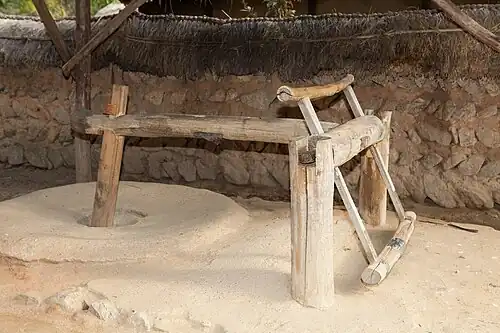
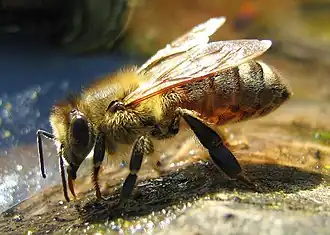



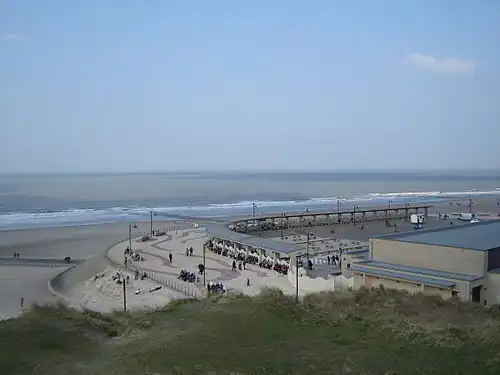
_-_United_States_National_Arboretum_-_24_May_2009.jpg)
